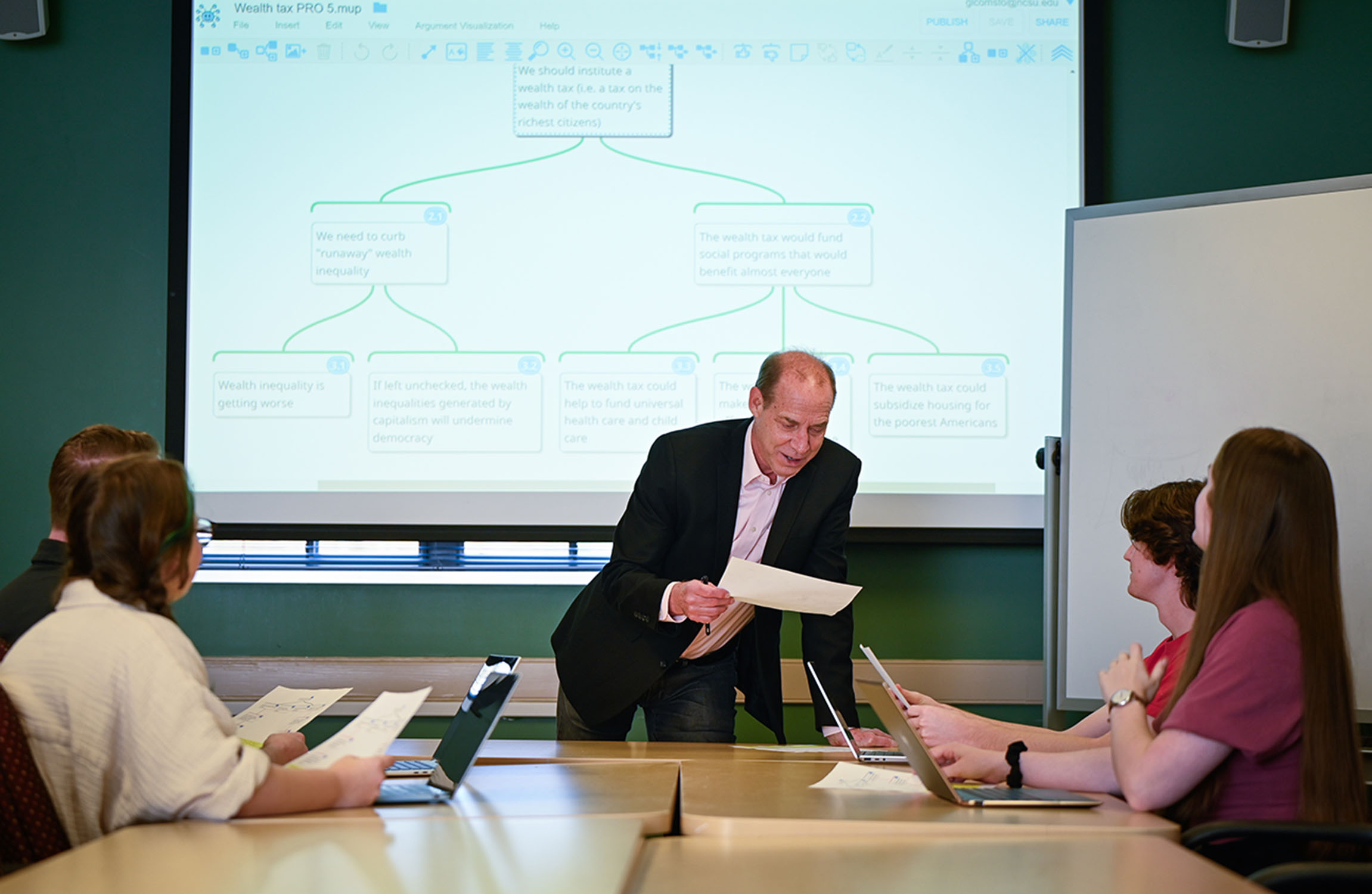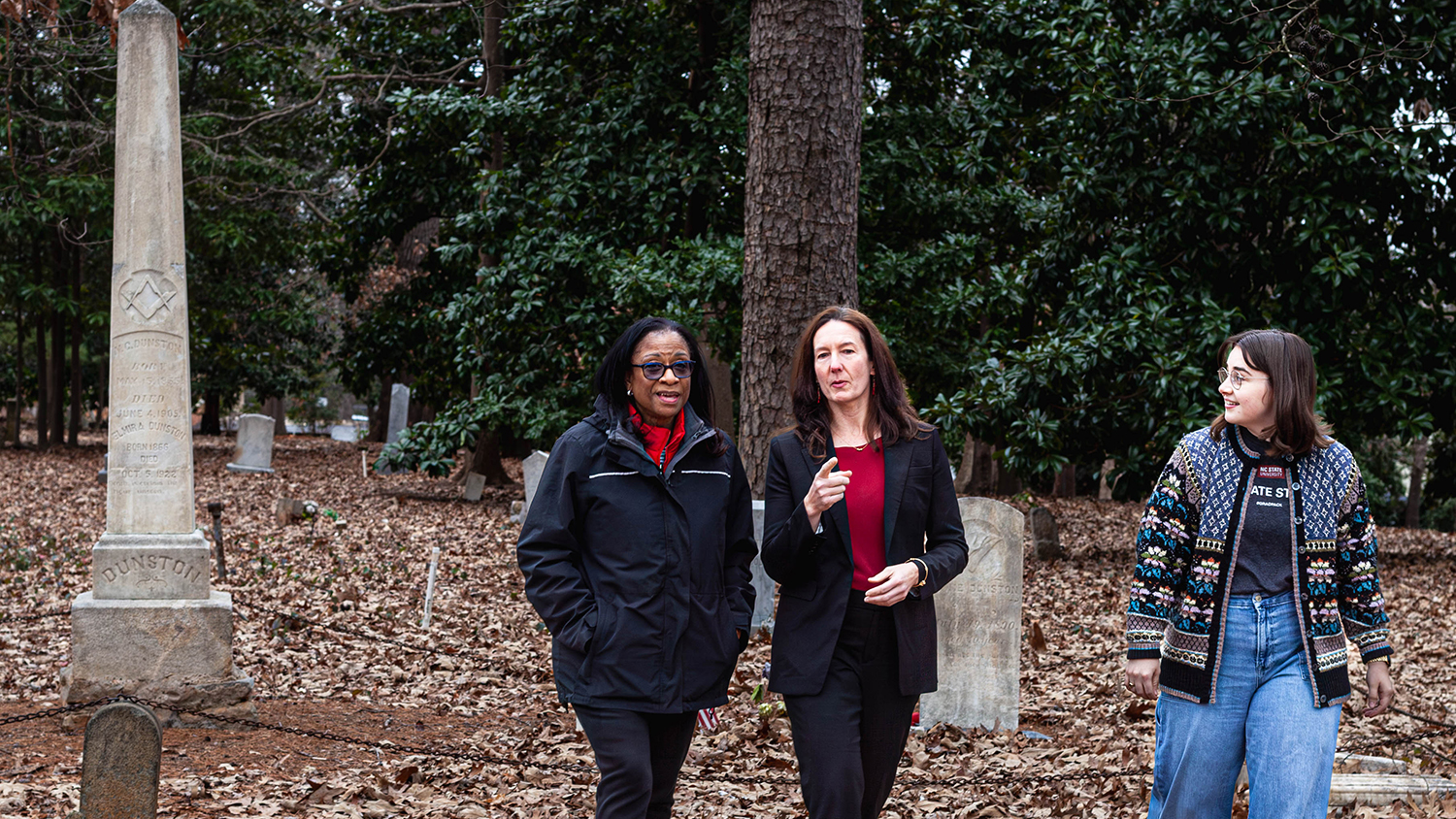Exploring AI hallucinations, examining how well children understand and respond to questions, and analyzing how diet affects bone health.
These are just three of the 12 initiatives the College of Humanities and Social Sciences Office of Research and Engagement funded through two programs: Junior Faculty Development Awards and Research Seed Grants.
The programs support CHASS faculty who are actively engaged in scholarship. A secondary purpose is to foster proposals for external funding from governmental agencies or private foundations, including grants and fellowships.
Under both programs, recipients received grants of up to $4,000 each to support their projects through the end of fiscal year 2026.
“These grants give our faculty the resources they need to launch or expand important research projects,” said Sarah Bowen, the college’s associate dean for research and engagement. “They also help position faculty to compete for external funding opportunities.”
The selected projects, added Bowen, highlight the college’s commitment to advancing research that brings a human-centered perspective to pressing social and cultural issues.
Learn more about the awardees and their projects:
Hallucinating Futures: Confabulation as Critical Method in Generative AI
Fernanda Da Costa Portugal Duarte, Communication
This research and media art project explores AI “hallucinations”— the strange or glitchy outputs of generative models — as creative and critical tools to examine how artificial intelligence shapes our cultural imagination, knowledge systems and visions of the future.
The Life and Times of Dorothy Arzner, Hollywood’s “Only” Woman Director
Marsha Gordon, English
This research and writing project will develop a biography of Dorothy Arzner, the only woman director working in Hollywood from the 1920s through the 1940s.
Cognitive Dimensions of Probabilistic Variation in Language Production: Clarifying the Link between Executive Working Memory and Subject Expression in Spanish
Sara Zahler, World Languages and Cultures
By combining psycholinguistic and sociolinguistic approaches, this study will examine how individual differences in working memory influence the grammatical choices of Spanish speakers during conversation, enhancing our understanding of how cognitive processes shape everyday language use and variation.
Operator Selections of Automated Decision Support Systems in Multi-Task Environments
Colleen Patton, Psychology
This project will aim to answer the question: How do workers choose to engage with multiple automated systems in multitasking contexts to improve performance?
Adverse Childhood Experiences (ACEs) Accumulation. Developmental Timing of ACEs, and Protective Factors: Examining Differences by Race/Ethnicity, Gender, Sexual Orientation, and Intersectional Identities
Aura Ankita Mishra and Kelly Lynn Mulvey, Psychology
This research will examine economic and mental well-being outcomes for emerging adults exposed to adverse childhood experiences (ACEs) while identifying protective factors for these associations and sub-groups differences.
The Effects of Diet on Bone Health
Julie Wesp, Sociology and Anthropology
This project will analyze how diet affects bone health by combining bone chemistry data and digital X-ray measurements for archaeological populations in Prehispanic Mexico and Colonial Colombia.
Investigating the Unpublished Poetry of Irish Polymath James Henry
Justin Tackett, English
With field research at Trinity College in Dublin, Ireland, this project will investigate the unpublished works of the Irish poet, classicist, physician, and activist James Henry (1798-1876). It will contribute to a book, The Sound Era: Poetry’s Machinery in the Long Nineteenth Century (under contract with Princeton University Press).
Social Network Correlates of African American English Features
Robin Dodsworth, English, and Steve McDonald, Sociology and Anthropology
This project will collect linguistic and social network data from people in Raleigh to investigate the link between linguistic variables and social network characteristics.
Children’s Epistemic Understanding of Utterance Descriptors
Breanne Wylie, Psychology
This project will explore how well children understand and respond to questions about conversations (e.g., Did he say that? Did he tell her that?), with implications for questioning child witnesses about prior conversations.
Experiencing Community Archives Through Mobile Texting
Chris Lindgren, English
As part of a partnership with the Iñupiaq-led Rematriation Project, this project will develop a prototype for a novel archiving tool that uses mobile messaging services as a sustainable and robust way for community members to submit and engage with archives.
On Shaky Ground: STEM Industry Instability and DEI Retractions
Marbella Eboni Hill, Sociology and Anthropology
This research project will investigate how the intersecting forces of post-pandemic economic instability and the backlash against diversity, equity and inclusion initiatives are reshaping career trajectories and workplace experiences in the tech sector.
Overcoming Collective Action Barriers to Community Microgrid Development: Experimental Insight
Serena Kim and Graham Ambrose, Public Administration
This project will examine the conditions under which people are more likely to cooperate and participate in inclusive decision-making when developing local microgrids, small community-based energy systems that generate and share electricity.
- Categories:



